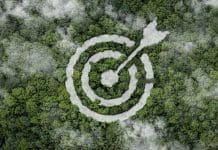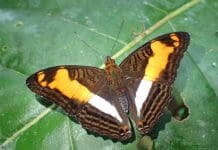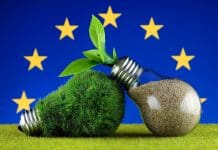Explore EU environment policy, illustrated by the examples of nature, biodiversity, the circular economy and chemicals, with Open Access Government
The European Commission’s Directorate-General for Environment (DG-ENV) is responsible for developing and implementing environmental policies to protect, preserve, and enhance the environment for current and future generations while fostering sustainable development.
A key objective is to achieve the European Union’s (EU) long-term vision of a world where citizens can thrive within the planet’s ecological limits. This vision includes creating an innovative, circular economy that protects and restores biodiversity and ecosystems while minimising pollution and environment-related health risks. (1)
Leadership within DG-ENV includes Jessika Roswall, the European Commissioner for Environment, Water Resilience and a Competitive Circular Economy (2), and Florika Fink-Hooijer, Director-General at DG-ENV. (3)
Commissioner Roswall leads efforts to protect our natural world and strengthen the circular economy, emphasising incentives, investments, and practical implementation. (2) Her work supports the goals outlined in the European Green Deal. Commissioner Roswall is honoured to be the first European Commissioner to explicitly refer to the term “competitive circular economy” in their portfolio’s name. (4)
Nature and biodiversity examined
Commissioner Roswall is responsible for co-leading the Circular Economy Act, which aims to create market demand for secondary materials, establish a single waste market, and propose a revised bioeconomy strategy. Additionally, she is advancing the Commission’s zero-pollution ambition and working on a new chemicals industry package. (2)
President von der Leyen’s mission letter to Jessika Roswall highlights that protecting the climate and nature are essential for prosperity and health. Enhancing Europe’s natural capital is a key priority for the Commission, impacting critical areas such as climate change, food security, competitiveness, and sovereignty.
The mission letter states, “Losing nature means losing resilience. It is, therefore, essential to continue to protect our natural world and boost our circular economy across the board to boost our competitiveness and build a healthier planet.”
President von der Leyen also requests that Commissioner Roswall focus on designing incentives for nature-positive actions and attracting private investment. Commissioner Roswall will lead the development of nature credits in close collaboration with Member States, organisations, and international partners.
The mission letter adds, “In preparing this, I would like you to work in dialogue with stakeholders, industries, financial institutions, development and commercial banks and other investors to boost private finance for nature.” (5)
At COP16 in Rome, Commissioner Roswall highlighted that declining biodiversity is a global issue that worsens ecosystem degradation and the impacts of climate change, threatening the livelihoods of vulnerable populations. Currently, 40% of the worldwide population is affected by land degradation, underscoring the need for international cooperation.
The Global Biodiversity Framework, a significant agreement designed to guide global action, establishes a clear timeline and specific targets for halting biodiversity loss, preventing species extinction, and enhancing land protection, rivers, and sea. A total of 196 countries are committed to reversing the alarming decline of nature, affecting billions of people’s lives. (6)
Did you know that the Birds Directive aims to protect all species of wild birds that are naturally found in the EU? The Directive prohibits activities threatening birds, such as deliberate capture or killing, destruction of nests, and removal of eggs. It also bans associated activities, like the trade in live or dead birds, with a few exceptions.
The Directive emphasises the importance of protecting habitats for endangered and migratory species, primarily by establishing Special Protection Areas (SPAs). This was underscored on 12th February 2025, when the European Commission referred France to the Court of Justice of the European Union for failing to comply with the hunting provisions outlined in the Birds Directive.
The Directive allows for derogations from the strict protection requirement when no satisfactory alternatives exist. This can include situations related to public health and safety, air safety, or preventing significant damage to crops, forests, livestock, water, and fisheries. Derogations may also be granted under strictly supervised conditions for the capture, keeping, or regulated use of certain birds in small numbers. (7)
Textiles and food waste circularity
On 18th February 2025, the Commission announced a provisional agreement reached between the European Parliament and the Council regarding a targeted revision of the Waste Framework Directive. This amended Directive promotes a circular economy throughout the EU by encouraging innovation and advancing more sustainable consumer and industrial practices.
A significant aspect of the revised Directive is its establishment of standard rules designed to enhance sustainability for consumers and businesses while harmonising the single market for waste and used textiles. The Commission will assist Member States in achieving these targets by sharing best practices and facilitating learning through the EU Platform on Food Losses and Food Waste. Additionally, it will finance research and provide action grants to support these initiatives.
The agreement addresses food waste, reflecting Member States’ commitment to combat it along production and supply chains, including in households. This Directive will help speed up the EU’s goal of meeting Sustainable Development Goal target 12.3, which aims to halve per capita global food waste and reduce food losses along supply and production chains by 2030. Member States should reduce food waste by 10% in manufacturing and processing by 2030 to support this effort. They should also work together to minimise food waste by 30% per capita at consumption and retail levels, including households, food services, and restaurants.
“This agreement shows Europe’s commitment to fostering a sustainable and competitive economy. Textiles and food are two areas where we are seeing a lot of precious resources going to waste, so I am happy that together with the co-legislators we agreed on a way forward to change this. The new rules will simplify the creation of a single market for textile waste and facilitate investments in innovations for textile waste management,” Commissioner Roswall said. (8)
It was only back in December 2024 that Commissioner Roswall remarked we’re witnessing a renaissance in sustainable practices, with traditional professions like tailors or cobblers gaining new relevance in the circular economy. Their skills are valuable in repair services, and innovative resale and rental models flourish across Europe. This sector also addresses environmental impacts through sustainable sourcing, improved product design for recyclability, and reverse logistics for used or returned textiles. (9)
REACH “forever chemicals”
President von der Leyen’s mission letter to Jessika Roswall outlines that, as part of the Commission’s zero-pollution initiative, Roswall will collaborate with the Executive Vice-President for Prosperity and Industrial Strategy on a new chemicals industry package. The new package seeks to simplify the REACH regulation and expedite efforts to clarify regulations concerning PFAS, known as “forever chemicals.” The work will consider competitiveness, sustainability, safety, and security. (5)
In December 2024, we heard that the REACH legislation was twenty years old. This period has provided insights into the practical workings of the procedures, revealing opportunities for more speed and efficiency. Commissioner Roswall mentioned in a press statement that there are still gaps in protecting human health and the environment, and we possess more knowledge about chemical substances and their effects now than we did two decades ago.
“As you know, the Commission aims to propose a targeted revision of REACH by the end of 2025,” Commissioner Roswall said.
“This revision will simplify and modernise the existing rules so that companies can benefit from more predictability and certainty without compromising on the level of protection that our citizens and the environment need,” Commissioner Roswall added.
We aim to ensure that authorities are better informed, which will help protect citizens from health risks associated with everyday products. Improving the efficiency of REACH (Registration, Evaluation, Authorisation and Restriction of Chemicals) is essential for enhancing our competitiveness sustainably, Commissioner Roswall stated. (10)
In her keynote address at the 7th Zero Pollution Stakeholder Platform meeting on 3rd March 2025, Commissioner Roswall emphasised the rising concern about plastic pollution and the health risks of microplastics and PFAS. With 78% of Europeans worried about harmful chemicals, the Commission must show they are committed to tackling this issue “by making pollution a thing of the past”.
Commissioner Roswall emphasised the need to incorporate zero pollution goals into other relevant policies. The European Water Resilience Strategy, the Chemicals Industry Package, and the Circular Economy Act are key priorities for achieving this integration. Additionally, it is essential to involve agricultural policy by engaging farmers as part of the solution. The Vision for Agriculture and Food serves as a helpful starting point. (11)
EU environment policy in the future
We wish Commissioner Roswall and her team well as they embark on their vital mission to shape and enhance EU environmental policy. Their work will focus on critical issues such as preserving nature and biodiversity, promoting a sustainable circular economy, regulating chemicals, and many other pressing matters that impact our planet’s health and future.
References
- https://commission.europa.eu/about/departments-and-executive-agencies/environment_en
- https://commission.europa.eu/about/organisation/college-commissioners/jessika-roswall_en
- https://commission.europa.eu/persons/florika-fink-hooijer_en
- https://ec.europa.eu/commission/presscorner/detail/en/speech_24_6466
- https://commission.europa.eu/document/download/871604c9-fc5e-46c1-be9a-dacb0e9bdb47_en?filename=mission-letter-roswall.pdf
- https://ec.europa.eu/commission/presscorner/detail/en/speech_25_621
- https://ec.europa.eu/commission/presscorner/detail/en/ip_25_455
- https://ec.europa.eu/commission/presscorner/detail/en/ip_25_548
- https://ec.europa.eu/commission/presscorner/detail/en/speech_24_6221
- https://ec.europa.eu/commission/presscorner/detail/en/statement_24_6502
- https://ec.europa.eu/commission/presscorner/detail/en/speech_25_655











